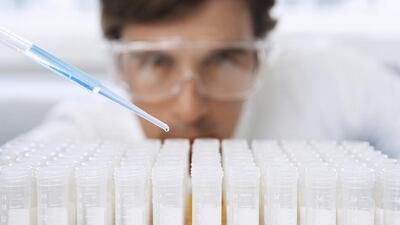If you could get a blueprint of your entire body and find out when, where and what will happen to it, would you? If you could read a script that tells you your past, present and some of your future, would you want to?
Genetic research has made great strides in recent years, offering tests on everything from skin age to food allergies to family history to tests that search for faulty genes linked to illnesses.
Genetic testing looks at the genes, which are the DNA instructions inherited from the parents. Depending on the suspected disorder, technicians look for changes in chromosomes, DNA, or proteins.
In 2013, Angelina Jolie made headlines worldwide after discovering she was carrying the genes associated with breast cancer and in reaction underwent a preventive double mastectomy. Today, there are genetic tests specifically targeting the BRCA1 and BRCA2 genes (Breast Cancer 1 and 2) and which are also associated with ovarian cancer.
Given how common cancer has become, with families struggling with loved ones who are fighting the battle, including my own, I decided to do a comprehensive cancer panel test via a blood test offered by a company in Dubai. The test analyses 122 genes associated with the most common hereditary cancers.
There was great resistance from family members and friends who warned against it, as they felt this kind of report would “feel like a death sentence” and that it was better to leave things to fate.
Personally, I was glad I did it. I felt empowered and it dismissed any fears I had, especially after a thorough discussion of the report with the genetic counsellor provided by the company. That helped clarify some misconceptions about genetic testing, including the fact that having a particular genetic variant doesn’t necessarily mean the condition associated with it will manifest. “Choice of lifestyle and exposure to toxins play a huge role,” according to the counsellor.
Ultimately, the take away message is that if you discovers you have a weakness somewhere that is exposed by the genetic testing, it helps you become more careful, take more precautions and preventive measures. You can start small, for example, set up a more ideal diet based on food related genetic testing, which will have an important impact long-term.
Genetic testing remains a sensitive topic, especially among the more conservative communities, who fear being labelled and appearing flawed.
But this is slowly changing. Pre-marital genetic testing, for example, can help couples plan better for the future.
There are some fun aspects about genetic testing, such as finding out your family history, and some in the Arab world use this to find out if they are related to famous tribes and families.
Some may be disappointed if they find out they weren’t as “purely” Arab as they had believed, but that is to be expected since the human race is a mix of backgrounds and stories.
In my case, promoted by a genetic variant in my report associated with a small group of indigenous people, I did the Family Tree DNA history test to discover I am mostly Finnish.
There were several amusing discoveries, which I enjoyed debating with my parents.
There are many genetic tests, and you can pick what aspect of your life you want more information on but regardless of how positive or negative the information you receive back, it is all good since more knowledge is always more empowering.
rghazal@thenational.ae
On Twitter:@arabianmau

